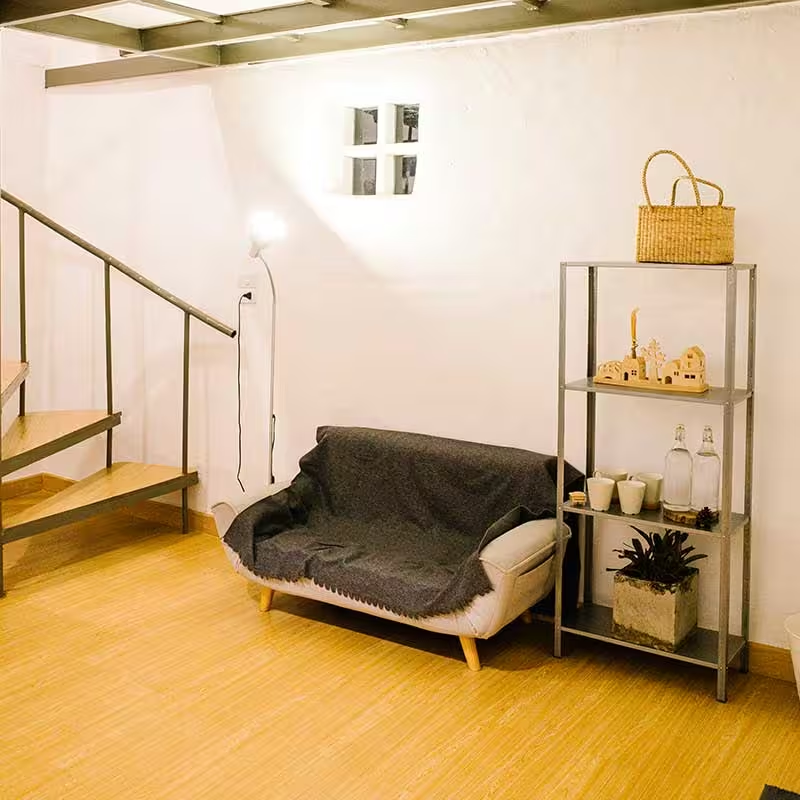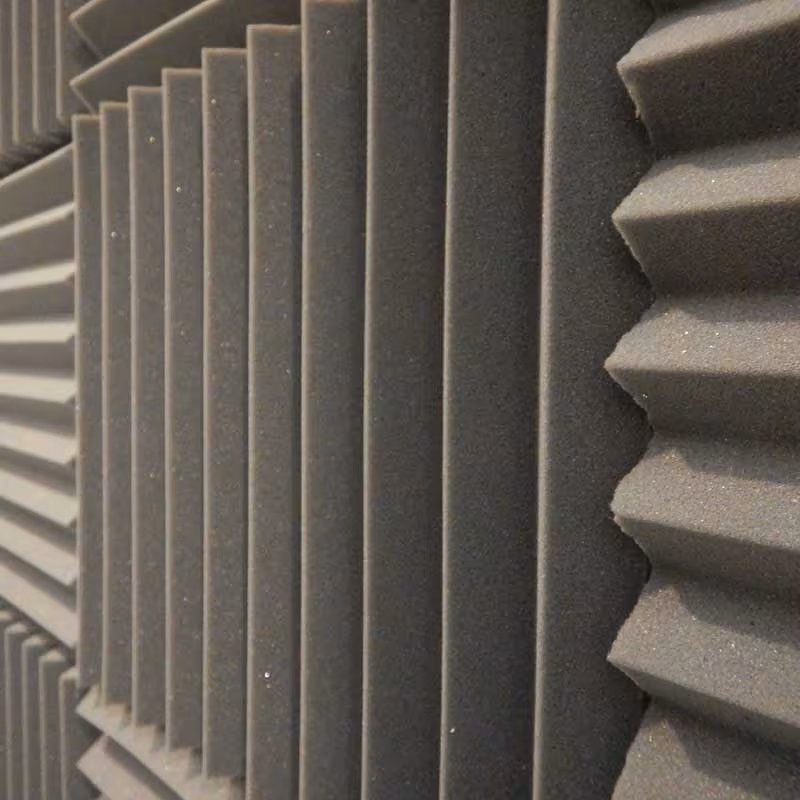In bustling London, noise can be a significant issue, whether it’s from busy streets, neighbouring properties, or internal disturbances.
Effective soundproofing solutions in London can transform your space into a peaceful sanctuary, providing a quieter environment that enhances comfort and privacy.
Whether you’re looking to soundproof a home office, bedroom, or entire property, we offer tailored solutions to meet your needs.

Contact us via phone, email or fill in the form at the bottom of the page for a Free No-Obligation Quote.
One of the primary advantages of soundproofing solutions in London is enhanced privacy. By reducing the amount of noise that enters or exits a room, soundproofing helps create a tranquil environment where you can work, relax, or sleep without disturbance. This is especially valuable in urban areas where external noise is a common concern.
Investing in soundproofing can also increase the value of your property. Modern buyers often seek homes with better sound insulation, especially in busy city environments. By upgrading your property with effective soundproofing solutions, you make it more appealing to potential buyers and improve its marketability.
In environments like home offices or studios, noise can be a major distraction. Effective soundproofing helps reduce unwanted noise, allowing you to focus better and work more efficiently. Creating a quieter workspace can lead to increased productivity and a more enjoyable working experience.
Wall soundproofing involves enhancing the walls of your space to block or absorb sound. Various methods can be used, including adding soundproofing panels, acoustic insulation, or double-layered drywall. Each method targets different aspects of sound transmission, ensuring effective noise reduction.
Acoustic panels are designed to absorb sound waves and reduce echo within a room. These panels can be installed on walls to improve the acoustics and overall sound quality, making them ideal for home offices, music rooms, or entertainment areas.
Insulated drywall provides additional layers of soundproofing by combining traditional drywall with sound-dampening materials. This method enhances the ability of your walls to block external noise and reduce sound transmission between rooms.
Floor soundproofing is essential for reducing noise between floors, especially in multi-story buildings or apartments. Options include installing soundproof underlayments, carpets, or specialized floor systems designed to absorb impact noise and vibrations.
Acoustic underlayments are placed beneath flooring materials to reduce sound transmission. These underlayments can be used with various types of flooring, including hardwood, laminate, and tile, providing effective noise reduction and enhancing comfort.
Carpet and padding offer a simple yet effective solution for floor soundproofing. Thick carpets and high-density padding help absorb sound and reduce impact noise, making them suitable for both residential and commercial spaces.
Ceiling soundproofing methods aim to block noise from above and reduce sound transmission between floors. Techniques include installing acoustic tiles, adding insulation, or creating a suspended ceiling system.
Acoustic tiles can be installed on ceilings to absorb sound and reduce noise reverberation. These tiles are particularly useful in spaces with high ceilings or where sound control is essential, such as conference rooms or recording studios.
Insulated suspended ceilings involve creating a secondary ceiling below the existing one, with soundproofing materials inserted in between. This system helps block noise from above and provides additional thermal insulation.
The installation of soundproofing solutions in London begins with a thorough assessment of your space to identify the most effective methods for noise reduction.
After selecting the appropriate materials and techniques, the installation process is carried out efficiently to minimize disruption.
Whether you’re soundproofing a single room or an entire building, attention to detail ensures optimal results and improved acoustic performance.
Effective soundproofing solutions in London offer a practical way to create a quieter, more comfortable living or working environment.
Whether you’re dealing with noisy neighbours, street traffic, or internal sound issues, tailored soundproofing solutions can significantly enhance your space.
Explore the options available and discover how soundproofing can improve your quality of life today.
Soundproofing can be applied to many parts of a building. The right approach depends on the type of noise and the structure of the property. Common solutions include:
Some projects use a combination of these methods for better results. The choice depends on whether you are dealing with airborne noise, impact noise, or both.

In London, noise problems often come from traffic, trains, neighbours, and construction work. Flats and terraced houses are more likely to have issues with sound transfer between walls and floors.
Soundproofing reduces noise by adding barriers and absorbing sound vibrations. For example, wall insulation stops voices and music from travelling between rooms. Floor treatments reduce footsteps and moving furniture noise. Double or triple glazing limits traffic and street noise from outside.
Homeowners use soundproofing to make their homes quieter and more comfortable. In residential settings, work often involves bedrooms, living rooms, and home offices. Loft conversions and basements also benefit from sound insulation to stop noise spreading through the building.
We assess each property to find the most effective solution. This might be adding insulation to party walls, installing acoustic underlay beneath flooring, or fitting specialist soundproof windows. Good soundproofing also helps with energy efficiency by improving insulation.


Businesses in London often need soundproofing for privacy, productivity, and comfort. Common applications include:
In offices, we can install acoustic panels, suspended ceilings, and soundproof partitions without major disruption to daily work. For hospitality and entertainment venues, we design solutions to meet both noise control needs and compliance standards.
Soundproofing materials vary depending on the type of noise and the structure of the building. Options include acoustic plasterboard, mineral wool insulation, sound mats, and resilient bars. These materials absorb and block sound waves, reducing how far they travel.
Installation methods can involve adding new layers to walls, creating floating floors, or using suspended ceiling systems. Sealing gaps and joints is also essential, as even small openings can let sound through.

Some soundproofing work falls under building regulations, especially in new builds and conversions. In England, Part E of the Building Regulations covers resistance to sound. This sets standards for airborne and impact noise between walls and floors in dwellings.
If you are converting a property into flats or changing its use, you must meet these requirements. For commercial spaces, specific noise control measures may be needed under health and safety or licensing rules. Professional installation ensures your project meets these legal standards.
We handle every stage of your project, ensuring smooth coordination and timely completion.
With years of experience across London, we understand local regulations, styles, and challenges.
Your space, your vision—our team creates tailored plans that fit your needs and lifestyle.
We use premium materials and expert craftsmanship to deliver lasting, high-quality results.
Our creative team brings fresh, functional design ideas to every project we take on.
We prioritise sustainable materials and energy-efficient methods for a smarter build.

We begin with a site visit to understand the type of noise problem you have. This includes identifying whether it is airborne noise, impact noise, or both. We also look at the structure of the property and discuss which areas you want to treat. At this stage, we talk through your budget and timescale.
Once we know the scope of work, we prepare a plan. This includes selecting the right materials, deciding on the installation method, and making sure the solution will work for the specific type of noise. If building regulations apply, we plan how to meet them. You will see the full plan before we schedule the work.


Before work starts, we arrange deliveries, prepare the workspace, and make sure safety measures are in place. We confirm the schedule and any access requirements with you. This stage avoids delays once construction begins.
We install the soundproofing according to the agreed plan. This may involve fitting acoustic panels, adding insulation to walls, ceilings, or floors, and sealing any gaps. We work carefully to ensure the installation is effective and meets the required standards.


When the installation is complete, we carry out a final check to confirm the soundproofing works as intended. We clear the site and give you any maintenance or care information. The area is ready to use straight away.
There are several options depending on the type of noise and property. Common solutions include acoustic wall panels, ceiling and floor insulation, double-glazed windows, and door seals. Each solution targets different noise sources, such as airborne sound or impact noise, and can be tailored for residential or commercial spaces.
The duration depends on the size of the property and the complexity of the solution. Small rooms can be completed in a few days, while larger commercial spaces may take a few weeks. We provide a clear timeline during the planning stage so you know what to expect.
We aim to keep any changes discreet. Many solutions, like wall or ceiling insulation, are hidden behind existing surfaces. Acoustic panels can be fitted in ways that match the décor. You can choose options that suit your style while still reducing noise effectively.
Most internal soundproofing work does not need planning permission. However, any structural changes or work in listed buildings may require approval. Our team ensures all work complies with local building regulations in London and meets safety standards.
Costs vary depending on the area, materials, and complexity of the installation. Smaller rooms can be done at a lower cost, while larger commercial projects are higher. We provide a full quotation after the initial consultation, with no hidden fees.
Whether you have questions about our services, need a quote, or want to discuss your next project, our friendly and knowledgeable team is ready to assist you.